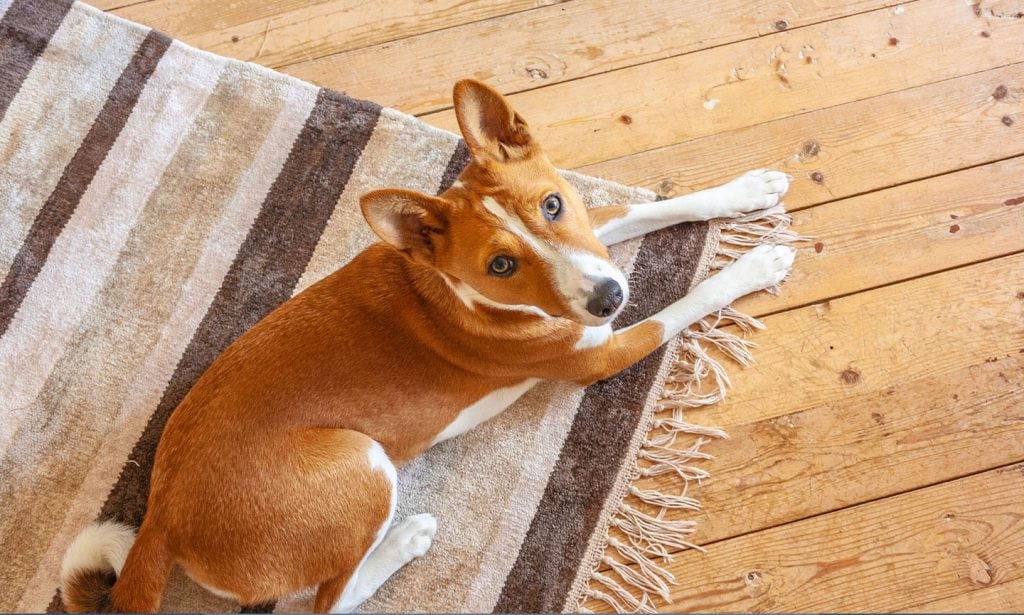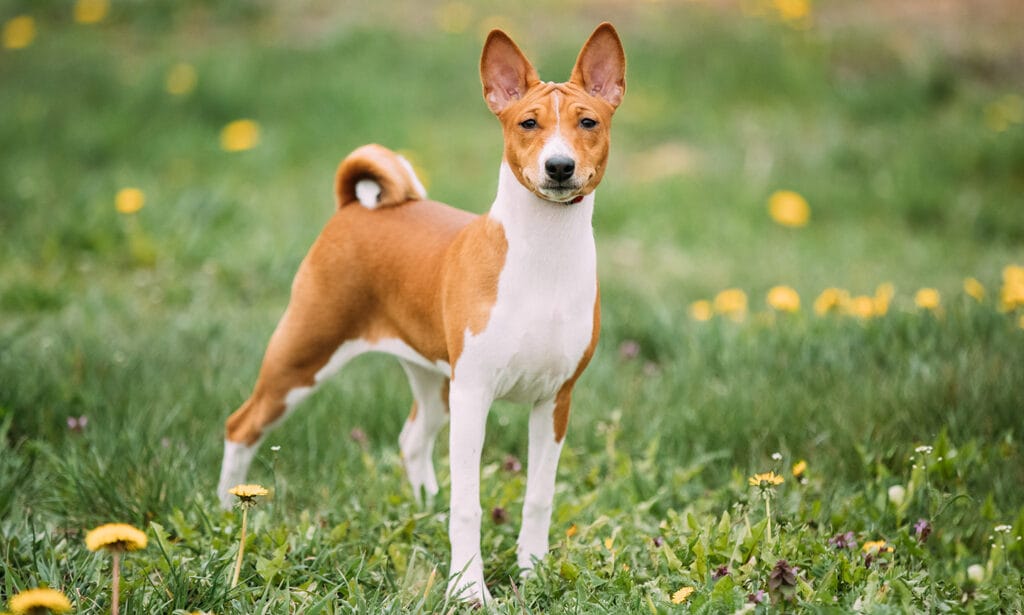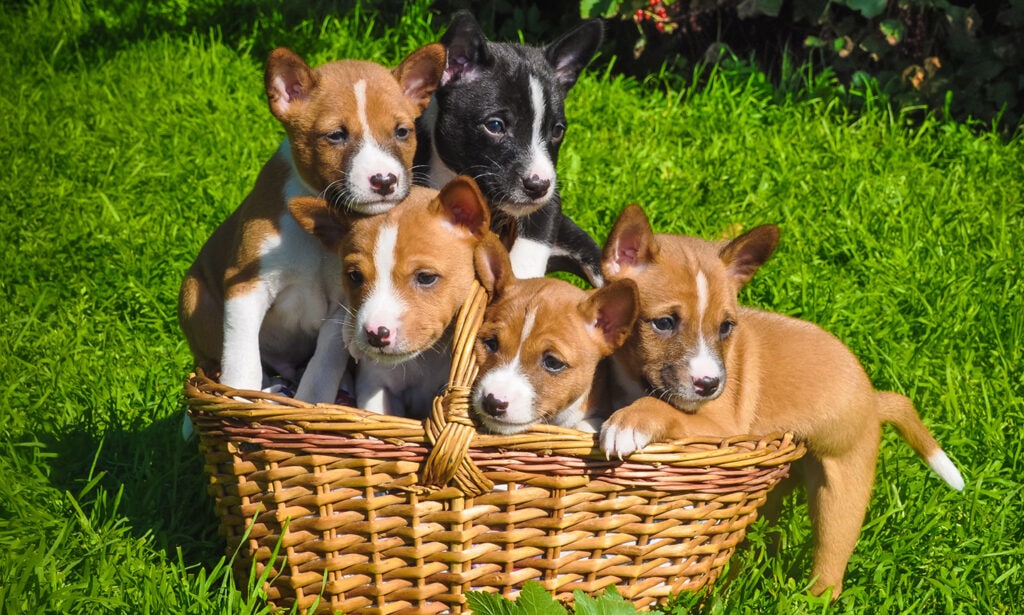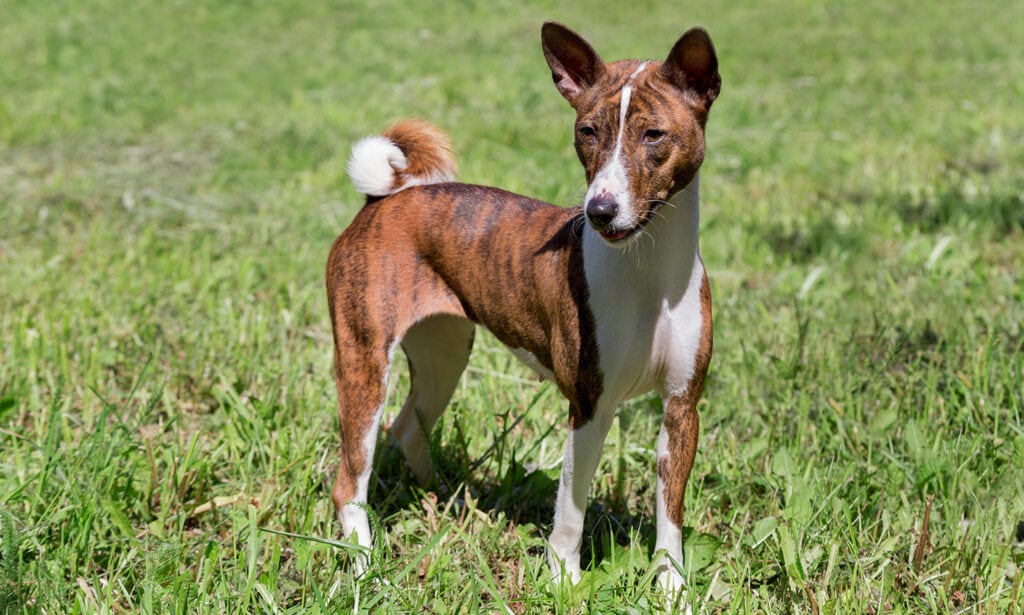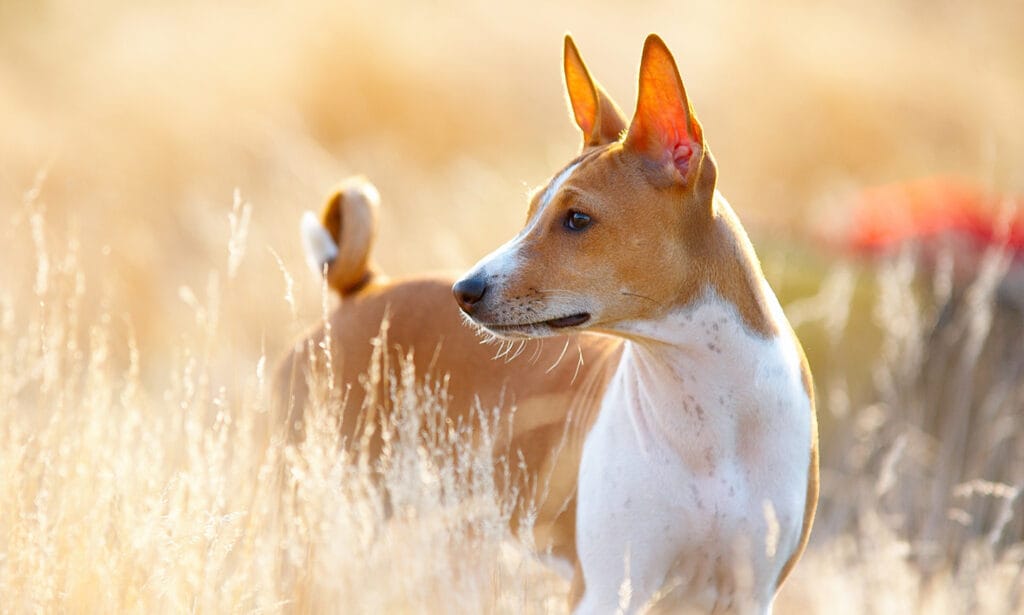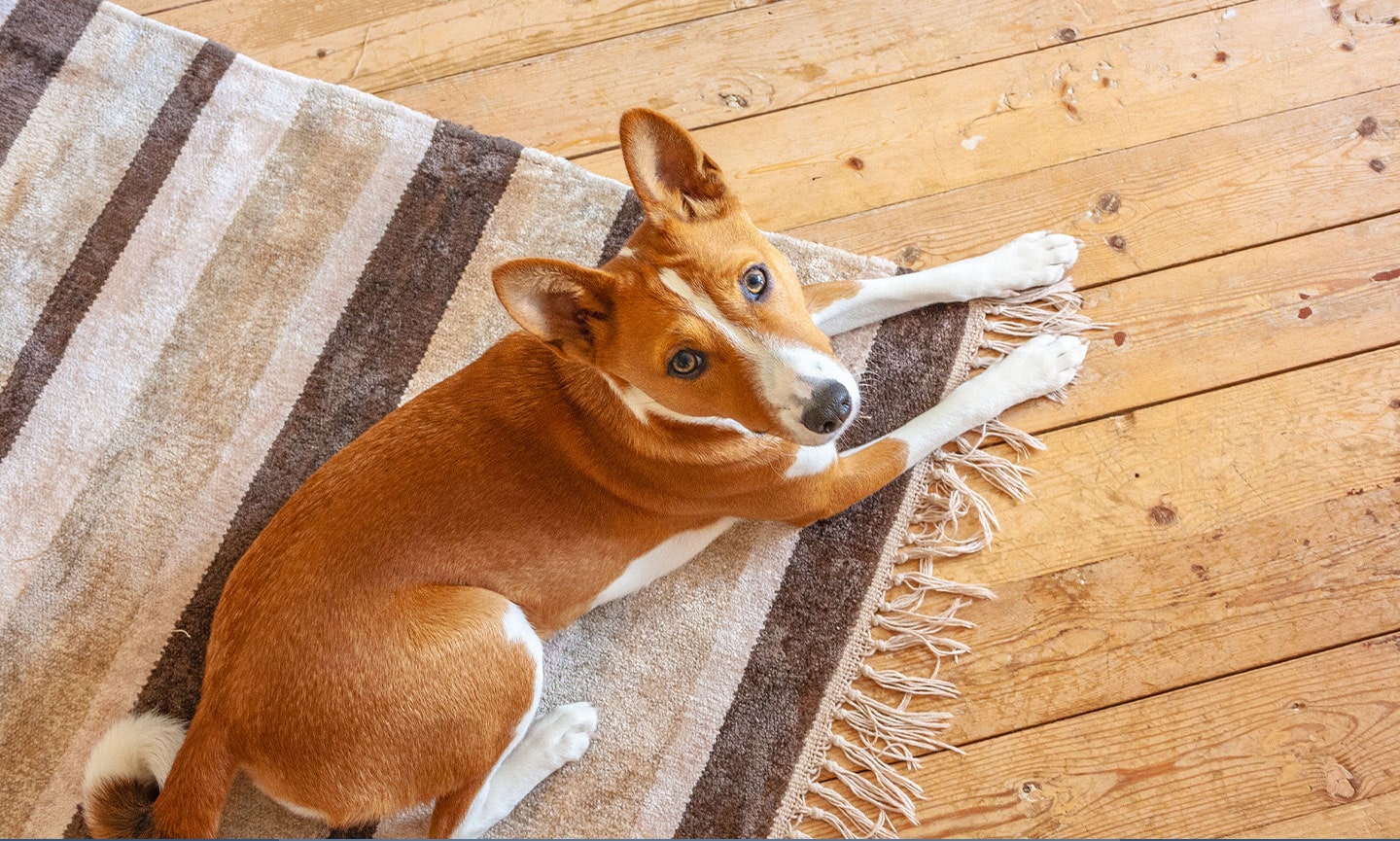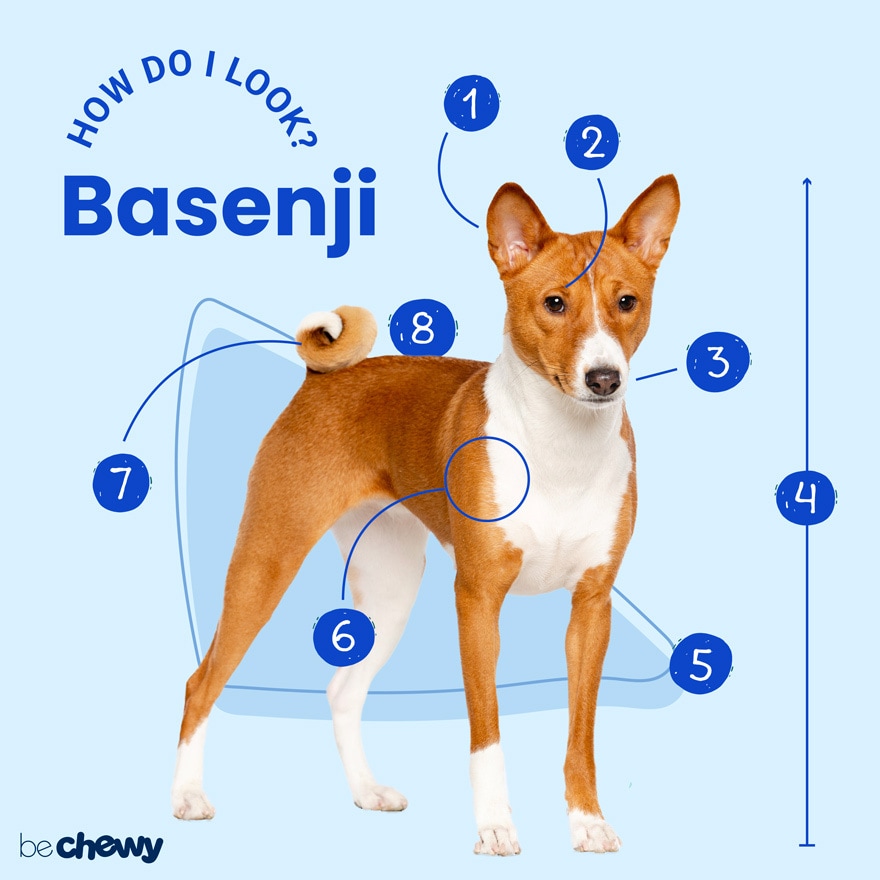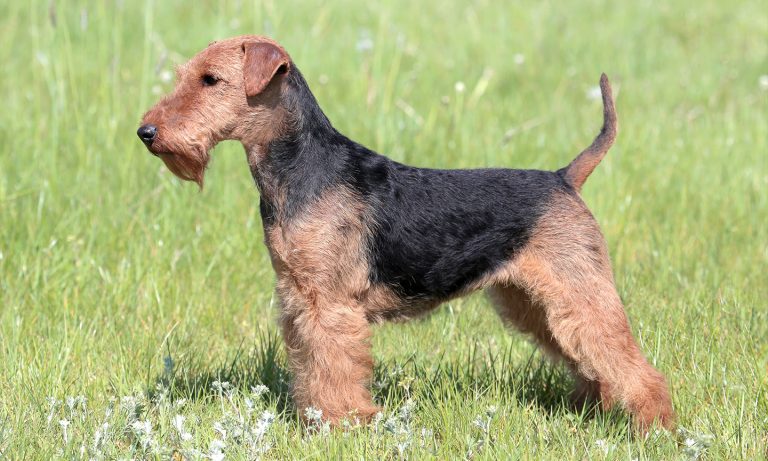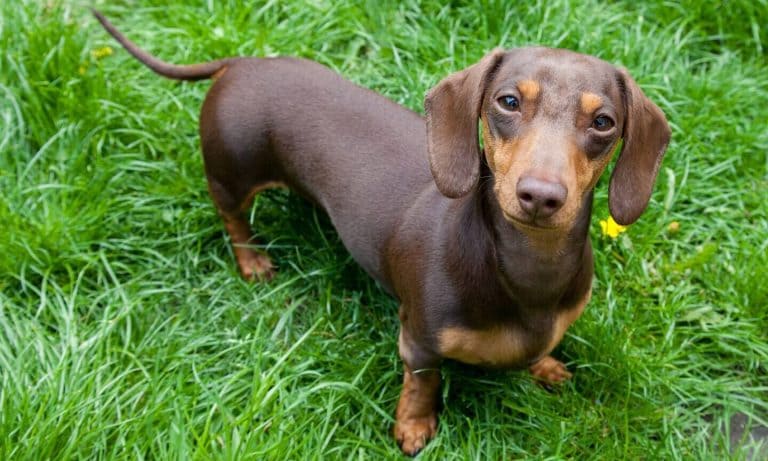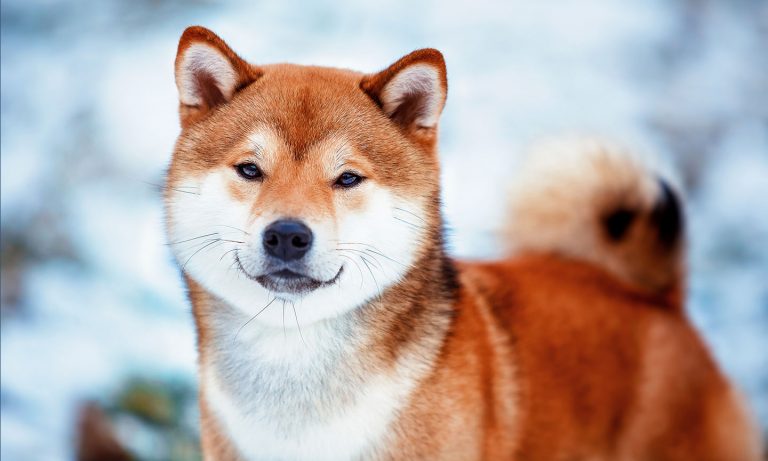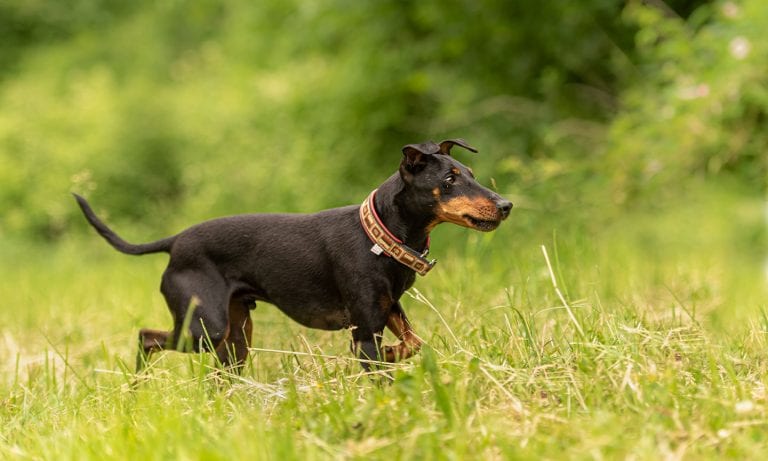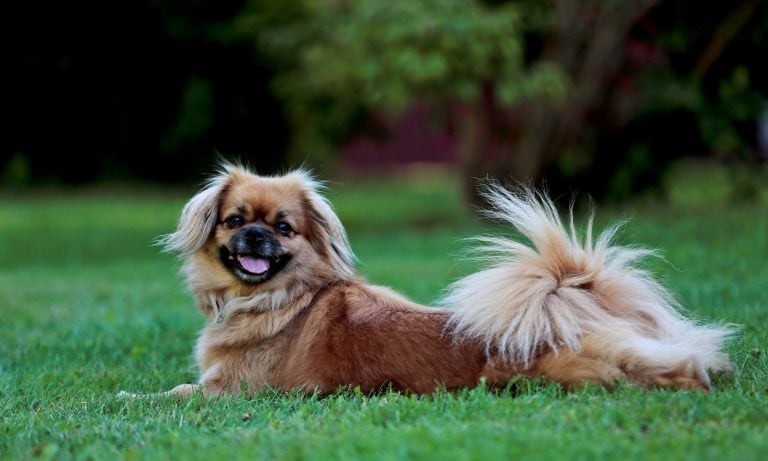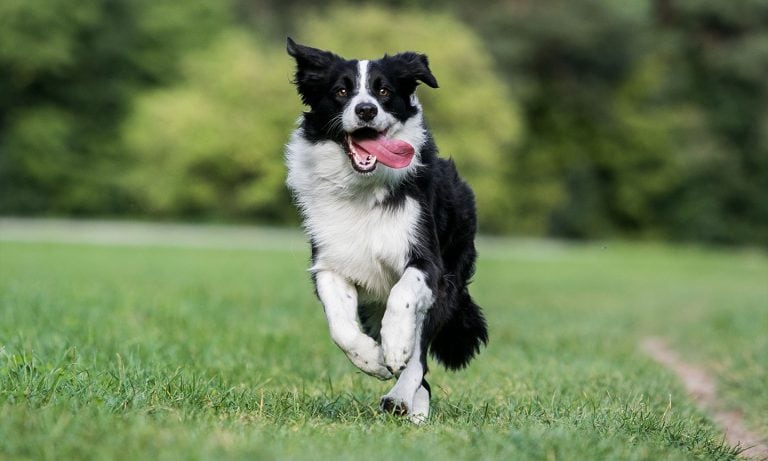If you’d like a dog who’s as unique as you are, then the Basenji may be the breed for you. This small hound dog may only stand about a foot-and-a-half tall, but they have what it takes to stand out in a crowd. They don’t bark, they yodel. They’re independent thinkers. They brim with self-confidence, and they groom themselves much like cats do.
Breed Snapshot
Temperament:
IndependentActiveIntelligentCoat Color:
Black And WhiteBlack Tan And WhiteBrindle And WhiteRed And White
Best For
The Basenji is a small hunting breed originating from Africa. Known as the "barkless dog," they produce a unique yodel-like sound instead of barking. Independent and intelligent, Basenjis are curious and spirited companions with a cat-like grooming behavior. They thrive best with active pet parents who provide a stimulating environment.
Basenji Temperament
The Basenji breed’s temperament might seem unusual if you’re used to more popular dog breeds like Golden Retrievers or Labs. They’re quite particular dogs who aren’t overly friendly and are often described as being cat like.
Originally bred as hunting dogs in Africa, Basenjis are high-energy, independent thinkers. They’re instinctively alert dogs who love to chase things—and will do just that!—and they need plenty of mental exercise to keep from being bored. They can be good with with other dogs and children they know, but early socialization is needed to make sure they grow up accepting new people, dogs and situations. They’re also fussy about their hygiene and will keep themselves tidy whenever possible.
Intelligent, active and individualistic dogs, Basenjis will do best in families who appreciate their uniqueness.
How to Care for a Basenji
Basenjis are easy to groom, and their food needs aren’t complicated. But they have an independent nature that may make training a challenge for the inexperienced pup parent. And Basenjis have a lot of energy that needs to be burned daily or else they just might find themselves getting into trouble.
Basenji Health
Basenjis have a lifespan of about 13 to 14 years. They are generally healthy dogs with few health problems. The following are common health issues seen in the Basenji dog breed that pup parents should be aware of so you can help your pet live the fullest life possible:
- Fanconi Syndrome: Basenjis can be predisposed to a genetic condition called Fanconi Syndrome, which affects a part of the of the kidneys called the tubules. Affected dogs fail to reabsorb some nutrients and electrolytes back into the body. Fortunately, breeders can screen for this condition to ensure it’s not passed to future generations. There is no treatment for this condition, but it may be managed with supplements.
- Progressive Retinal Atrophy: This is a genetic eye issue that leads to eventual blindness. Typically, night and low-light vision are affected first. There is no cure for PRA; it’s usually a slow progression to blindness, giving the dog time to adapt.
- Persistent Pupillary Membrane: This is an eye condition that can occur when the puppy’s embryonic vessels that attach to their lens don’t resorb completely and remain present in the eye. This may cause mild to severe vision issues. Fortunately, this may clear up on its own and only occasionally needs veterinary intervention.
- Hip Dysplasia: This is a hereditary issue that occurs when the hip joint doesn’t develop properly, which results in looseness of the joint. Depending on severity, it can be quite painful. Treatment options may include weight management, joint supplements, pain medications, physical therapy or even surgery.
- Hypothyroidism: This condition occurs when the thyroid gland is damaged or deteriorates, and no longer regulates the metabolism properly. When this happens, problems like weight gain, lethargy, skin/haircoat changes, reproductive changes, or neurological problems may develop. Hypothyroidism is usually diagnosed with blood testing, and may be managed with thyroid supplementation.
Basenji History
While Basenjis have only been in the United States since the 1930s, their history stretches back for centuries. Canine DNA research has shown Basenjis to be a truly ancient breed with unique DNA unlike any other domesticated dog breed. Cave paintings in Africa depict Basenji-like dogs with curled tails, and these dogs were given to pharaohs in ancient Egypt.
Basenjis were hunting dogs in Africa in the 1800s, but the qualities and characteristics of this intriguing breed fascinated Europeans. Early efforts to import Basenjis to England proved difficult due to distemper and other factors. In the 1930s, Mrs. Olivia Burn was instrumental in her efforts to establish Basenjis in England; she referred to them as “the barkless dog of the Congo.”
The first Basenjis arrived in the United States in 1937, and the Basenji Club of America was established in 1942.) The American Kennel Club recognized the Basenji breed a couple years later in 1944.
Are you looking to add a Basenjis as a family member? It depends on the breeder and the region where you live, but generally, a Basenjis puppy will cost between $1,500 and $3,000. Check out the AKC puppy finder to find a reputable breeder. You can also seek out local Basenjis rescues, like Basenji Rescue and Transport; keep an eye out for the breed at your local shelter; or search Chewy’s database of adoptable dogs in your area.
FAQs
Do Basenjis bark?
No, Basenjis do not bark. But even though they are considered barkless, it’s important to remember they do make noise. Basenjis are capable of making many sounds, and they love to yodel.
Are Basenjis hypoallergenic? Do they shed?
While it’s impossible to say that any dog is 100-percent hypoallergenic, Basenjis tend to be a better match for people with allergies than many other dog breeds. Basenjis shed minimally and have low amounts of dander, plus they are fastidiously clean dogs, which also helps to reduce allergens.
Are Basenjis good family dogs?
Basenjis can be good family dogs when they’re properly socialized and trained from an early age. In general, all dogs should be supervised around young children, and children should be taught how to properly handle dogs and respect their boundaries.
Which breed is most similar to the Basenji?
We have found Shiba Inus to have several similar characteristics as Basenjis. Compare these two breeds side-by-side and see for yourself.
What are the most common Basenji dog mixes?
- Basenji-Chihuahua mix (Chisenji or Basenji Chi)
- Basenji-American Pit Bull Terrier mix (Pitsenji)
- Basenji-Labrador Retriever mix (Labrasenji)
- Basenji-Cardigan Welsh Corgi mix (Corsenji)
- Basenji-German Shepherd mix (German Shepenji)
- Basenji-Siberian Husky mix (Basenji Siberian Husky)
Are there any famous Basenjis?
In the 1950s film Good-bye, My Lady the title role was played by a Basenji by the name of My Lady of the Congo.
How do you pronounce Basenji?
Basenji is pronounced buh-SEN-jee.
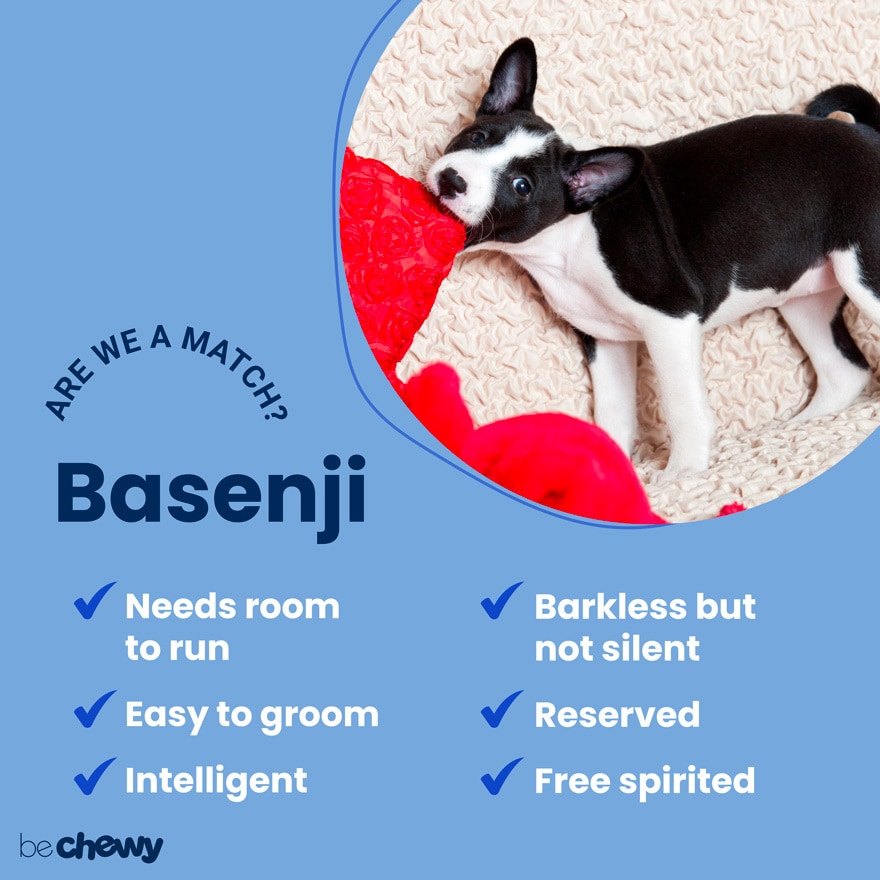
Top Takeaways
You might first be drawn to the Basenji for their barkless trait or their cute curly tail, but once you discover their intelligence, their easy grooming needs and their fascinating history, you’ll be a Basenji fan for life.
Expert input provided by veterinarian Dr. Ellen Kinzl, DVM, of Liberty Village Animal Hospital and certified dog trainer Christine Danker, CPDT-KA, KPA-CTP, PMCT3, of Hemlock Hollow LLC.
Breed characteristic ratings provided by veterinarian Dr. Sarah J. Wooten, DVM, CVJ, a veterinarian at Sheep Draw Veterinary Hospital in Greeley, Colorado; dog trainer and behavior consultant Irith Bloom, CPDT-KSA, CBCC-KA, CDBC, owner of The Sophisticated Dog, LLC, in Los Angeles; and certified animal behavior consultant Amy Shojai, CABC, in Sherman, Texas.
The health content was medically reviewed by Chewy vets.

Search for Adoptable Basenjis Near You
Female Names
- Lucy
- Luna
- Nala
- Sadie
- Rosie
- Coco
- Willow
- Cleo
- Ruby
- Lily
Male Names
- Benji
- Cooper
- Jax
- Ollie
- Duke
- Loki
- Remy
- Max
- Koda
- Bruno
Share:
